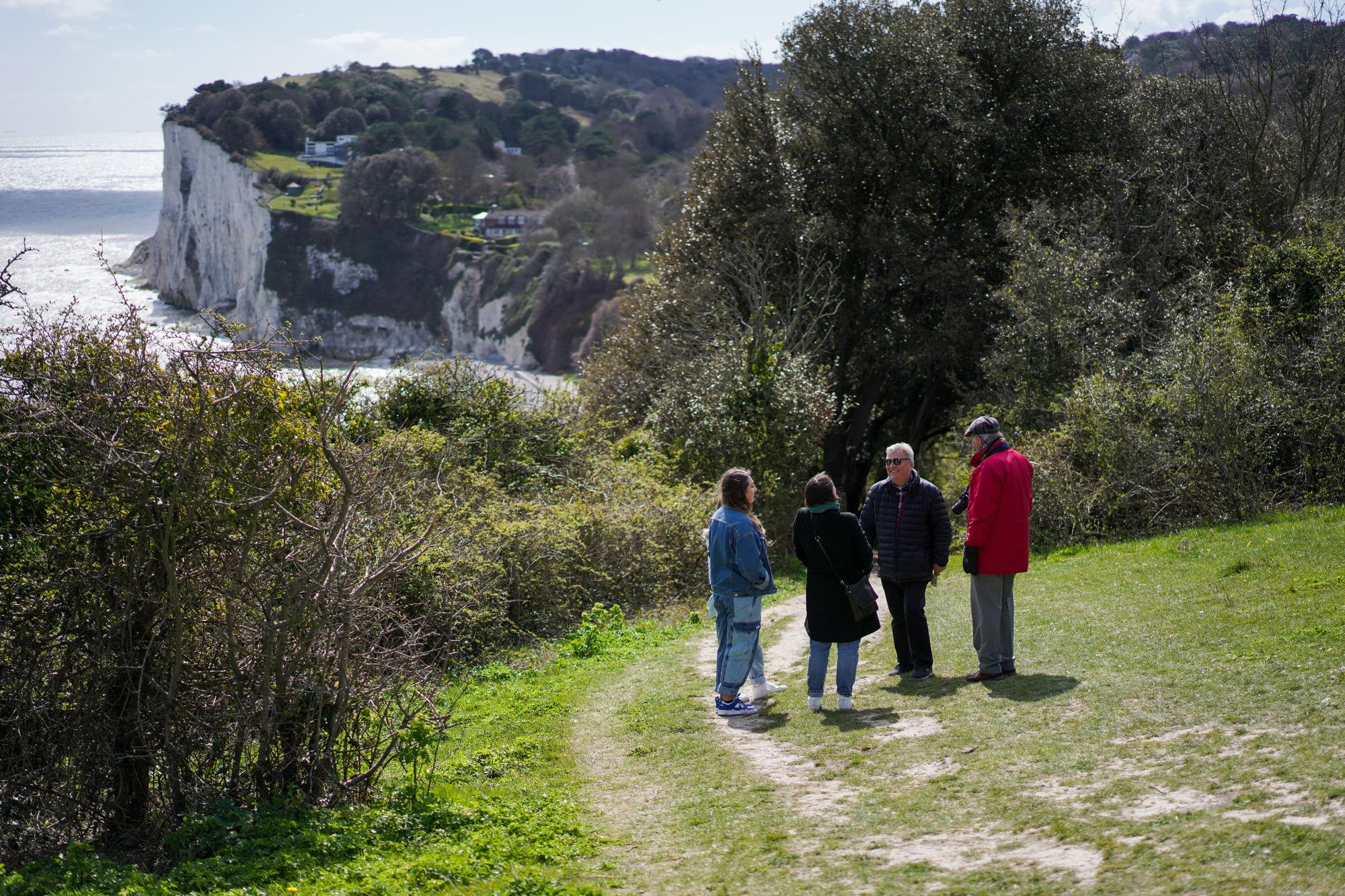Elder travel is experiencing a surge in popularity, as more seniors seek enriching experiences and fulfilling adventures later in life. This comprehensive guide delves into the various facets of senior travel, from meticulous planning and budgeting to prioritizing health and safety, ensuring a smooth and enjoyable journey. We explore diverse travel styles catering to different preferences and physical capabilities, highlighting the unique benefits and challenges associated with each.
From selecting the perfect destination and crafting an itinerary to navigating the complexities of travel insurance and accessible accommodations, we provide practical advice and insightful tips for a seamless and enriching travel experience. The guide also addresses common concerns and misconceptions surrounding elder travel, empowering seniors to confidently embark on their next great adventure.
Types of Elder Travel
The travel industry is increasingly catering to the needs and desires of the senior population, offering a diverse range of experiences designed to enhance their well-being and create lasting memories. These experiences are not simply about sightseeing; they consider physical limitations, social interaction, and the overall enrichment of the traveler’s life. The following categories highlight the variety available.
Relaxation and Wellness Retreats
These trips prioritize rest, rejuvenation, and stress reduction. Activities typically include spa treatments, yoga, meditation, and gentle walks in nature. Accommodations are often luxurious resorts or boutique hotels with accessible amenities like elevators and single-level rooms. The social aspect focuses on relaxation and shared experiences within a calming environment, fostering a sense of community and reducing feelings of isolation.
The physical demands are minimal, making these trips suitable for a wide range of physical abilities. Accessibility features are usually excellent, with many resorts specifically designed to cater to older travelers.
Adventure and Discovery Tours
While the term “adventure” might seem contradictory to “elder travel,” this category encompasses journeys designed to stimulate the mind and spirit, with a focus on manageable physical activity. Think escorted tours to national parks with accessible trails, cruises offering gentle excursions, or culturally rich city breaks with accessible transportation options. Accommodations vary but often prioritize comfort and ease of access.
The social aspect revolves around shared exploration and the opportunity to connect with fellow travelers who share similar interests. Physical demands are moderate, requiring a reasonable level of mobility and stamina, but itineraries are typically paced to accommodate slower speeds and rest periods. Accessibility features are considered, although specific requirements should be communicated to the tour operator beforehand.
Cultural Immersion Programs
These trips focus on exploring different cultures and enriching the traveler’s understanding of the world. This could involve visiting historical sites, attending cultural performances, or participating in local workshops. Accommodations range from comfortable hotels to charming guesthouses, often chosen for their cultural significance or proximity to key attractions. The social aspect is highly enriching, allowing for interactions with locals and fellow travelers, fostering a deeper appreciation for different cultures and lifestyles.
Physical demands are typically moderate, involving walking and potentially some stairs, but tours are usually designed to be manageable for most seniors. Accessibility features vary depending on the specific location and tour operator, so prior inquiry is essential.
Cruise Vacations, Elder travel
Cruises offer a unique blend of relaxation, exploration, and social interaction. Many cruise lines offer itineraries tailored to older travelers, with accessible cabins, onboard amenities, and shore excursions designed to accommodate varying levels of mobility. The social aspect is inherent in the cruise environment, with ample opportunities to interact with fellow passengers and participate in onboard activities. Physical demands are generally low, with many activities available for those with limited mobility.
Accessibility features are increasingly common on modern cruise ships, but it is crucial to confirm specific accommodations with the cruise line.
Multi-Generational Family Trips
These trips bring together multiple generations of a family for a shared travel experience. They provide opportunities for strengthening family bonds and creating lasting memories. Activities are typically chosen to accommodate the diverse needs and interests of all age groups, with a balance of relaxation and exploration. Accommodations usually involve renting a large vacation home or booking multiple rooms in a family-friendly resort.
The social aspect is central to this type of travel, focusing on strengthening family connections and creating shared experiences. Physical demands vary depending on the chosen activities, but itineraries can be tailored to accommodate different mobility levels. Accessibility features should be considered when selecting accommodations and activities.
Health and Safety Considerations
Planning a trip for older adults requires careful consideration of health and safety aspects to ensure a smooth and enjoyable experience. Failing to address potential health issues and safety concerns can significantly impact the overall trip, potentially leading to unexpected medical emergencies or injuries. Proactive planning is crucial for mitigating risks and promoting a safe and fulfilling travel experience for senior citizens.Prioritizing health and safety doesn’t mean foregoing travel; rather, it means adapting the travel experience to the specific needs and capabilities of the older adult.
This involves careful planning, preparation, and awareness of potential challenges.
Medication Management During Travel
Proper medication management is paramount for older adults traveling, especially those with chronic conditions. This involves carrying sufficient medication for the entire trip, including extra supplies in case of delays. Medications should be kept in their original containers, clearly labeled with the individual’s name and dosage instructions. A detailed list of all medications, including dosages and prescribing physicians’ contact information, should be readily available, both in physical form and digitally, perhaps through a shared online document or sent to a trusted contact.
Furthermore, travelers should inform their physicians of their travel plans and obtain any necessary recommendations or precautions. Consider carrying a small, portable first-aid kit containing essential supplies like bandages, antiseptic wipes, and pain relievers.
Emergency Protocols and Procedures
Establishing clear emergency protocols is crucial. This includes identifying and sharing emergency contact information with family, friends, or a travel companion. Knowing the location of the nearest hospital or medical clinic is essential. Travelers should also be aware of the local emergency services number (e.g., 911 in the US, 999 in the UK). Consider purchasing travel insurance that includes medical evacuation coverage, particularly for trips to remote areas or countries with limited medical facilities.
Before departure, it’s wise to inform family members or friends of the itinerary and expected return date. Regular check-ins throughout the trip can provide an added layer of security.
Accessible and Safe Accommodations and Transportation
Choosing accessible and safe accommodations and transportation is vital for ensuring a comfortable and safe journey. This involves selecting hotels or other accommodations with features like elevators, ramps, and grab bars in bathrooms. Transportation options should be considered carefully. For example, using accessible taxis or ride-sharing services that provide vehicles equipped for wheelchairs or other mobility devices may be necessary.
Pre-booking transportation can help ensure that suitable options are available. Thoroughly researching the accessibility of planned destinations, including tourist attractions and restaurants, is also advisable.
You also will receive the benefits of visiting assisted travel for elderly today.
Preventing Common Travel-Related Illnesses and Injuries
Older adults are more susceptible to certain travel-related illnesses and injuries. Staying hydrated is crucial to prevent dehydration, particularly in hot climates. Practicing good hygiene, including frequent handwashing, can help prevent the spread of infections. Wearing appropriate clothing and footwear can minimize the risk of falls and injuries. Sun protection, including hats, sunglasses, and sunscreen with a high SPF, is vital to prevent sunburn and heatstroke.
Additionally, familiarizing oneself with local health advisories and taking necessary precautions, such as vaccinations, can significantly reduce the risk of contracting infectious diseases. Consulting a physician before traveling is recommended to address any specific health concerns or necessary preventative measures.
Technology and Elder Travel
Technology is rapidly transforming the travel landscape, offering significant benefits to senior travelers. From simplifying the booking process to enhancing safety and providing constant connectivity, various technological tools are empowering older adults to explore the world with greater ease and confidence. This section examines how technology is improving the travel experience for seniors, focusing on key applications and considerations.
Smartphones and other mobile devices have become indispensable travel companions, particularly for older adults. These devices offer a wealth of travel-related applications, transforming how seniors plan, navigate, and experience their journeys.
GPS Tracking and Communication Tools Enhance Safety
GPS tracking devices and applications offer invaluable peace of mind for both senior travelers and their loved ones. Real-time location tracking allows family members to monitor a senior’s whereabouts, providing reassurance and enabling swift assistance in case of emergencies. Many GPS trackers are designed specifically for seniors, featuring user-friendly interfaces and durable designs. Furthermore, integrated communication features, such as emergency SOS buttons, allow seniors to quickly contact family or emergency services if needed.
Examples include personal emergency response systems (PERS) that integrate GPS tracking and two-way communication, providing immediate access to help in case of a fall or other incident. These devices are often linked to a monitoring service that can dispatch emergency responders if necessary.
Accessible Online Booking Systems for Senior Travelers
Online travel agencies and booking platforms have made planning trips significantly easier for everyone, including senior travelers. Many platforms offer user-friendly interfaces with large fonts, clear navigation, and accessible features for those with visual impairments. Websites such as Expedia, Booking.com, and Kayak provide comprehensive search tools, allowing seniors to filter results based on their specific needs and preferences, such as accessibility features in accommodations or transportation options.
Furthermore, many platforms offer customer support via phone, email, or chat, providing assistance with bookings and addressing any questions or concerns. The accessibility of these online resources empowers seniors to manage their travel arrangements independently and conveniently.
Apps and Devices Enhancing the Travel Experience
A wide array of apps specifically cater to the needs of senior travelers. Translation apps can overcome language barriers, while currency converters simplify financial transactions. Audio guide apps provide informative commentary on historical sites and landmarks, enhancing the cultural experience. Furthermore, apps dedicated to finding accessible transportation, accommodations, and activities empower seniors to travel more independently and confidently.
For example, apps like “Rome2rio” can help plan multi-modal journeys, while apps dedicated to finding wheelchair-accessible locations can simplify trip planning for seniors with mobility challenges. These tools ensure that the travel experience is not only safer but also more enriching and enjoyable for senior travelers.
Illustrative Examples of Elder Travel Destinations

Choosing the right destination is crucial for a successful and enjoyable elder travel experience. Factors such as climate, accessibility, and available activities all play a significant role in determining the suitability of a location. The following examples showcase destinations catering to the specific needs and preferences of older travelers.
Elder-Friendly Destinations
The selection of destinations below considers factors such as ease of navigation, readily available medical services, and a range of activities suitable for varying levels of physical ability. These destinations offer a blend of cultural immersion, relaxation, and adventure, tailored to the senior traveler.
| Destination | Description of Destination | Suitable Activities | Accessibility Features |
|---|---|---|---|
| San Sebastian, Spain | A coastal city in northern Spain known for its beautiful beaches, stunning architecture, and rich Basque culture. The city boasts a relatively flat terrain and a relaxed pace of life. | Strolling along the La Concha beach, exploring the Old Town’s charming streets, enjoying pintxos (Basque tapas), attending cultural events, and taking a scenic boat trip. | Many restaurants and shops are accessible, and public transportation is relatively easy to navigate. Wheelchair rentals are available. |
| Charleston, South Carolina, USA | A historic city in the southeastern United States, famous for its antebellum architecture, charming squares, and rich history. The city offers a blend of history, culture, and Southern hospitality. | Horse-drawn carriage rides, exploring historic sites and museums, enjoying leisurely meals in outdoor cafes, and taking a harbor cruise. | Many historic sites offer wheelchair access, and the city offers a variety of transportation options, including accessible taxis and ride-sharing services. |
| Kyoto, Japan | An ancient city in Japan, known for its traditional temples, serene gardens, and rich cultural heritage. While some areas may present challenges, many areas are well-suited for slower-paced exploration. | Visiting serene gardens like Ryoan-ji, exploring traditional temples like Kinkaku-ji (Golden Pavilion), enjoying tea ceremonies, and taking a leisurely stroll through Gion district. | Many temples and gardens offer accessible pathways and ramps, and public transportation is generally well-equipped for accessibility. However, some areas may require assistance. |
| Quebec City, Canada | A historic city in eastern Canada, renowned for its European charm, cobblestone streets, and impressive fortifications. While hilly in parts, many accessible areas exist. | Exploring the historic Old Quebec, taking a funicular ride up to the Citadelle, enjoying French-Canadian cuisine, and visiting museums. | Accessible transportation is available, including buses and taxis. Many attractions offer accessible entrances and facilities, though some cobblestone streets may pose challenges. |
| Vienna, Austria | A city known for its imperial palaces, classical music, and elegant cafes. Vienna offers a blend of history, culture, and sophisticated ambiance. While some areas are hilly, accessible routes and transportation are available. | Visiting Schönbrunn Palace, attending a classical music concert, exploring the Hofburg Palace, and enjoying coffee at a traditional Viennese café. | Vienna has a well-developed public transportation system with accessible options. Many attractions offer accessible entrances and facilities. |
Ultimately, elder travel offers an unparalleled opportunity for personal growth, rejuvenation, and the creation of lasting memories. By carefully considering the factors Artikeld in this guide, seniors can confidently plan and execute unforgettable journeys, enriching their lives and expanding their horizons. Embracing the possibilities of accessible and inclusive travel, seniors can unlock a world of adventures tailored to their needs and desires, fostering independence, connection, and a renewed sense of purpose.



